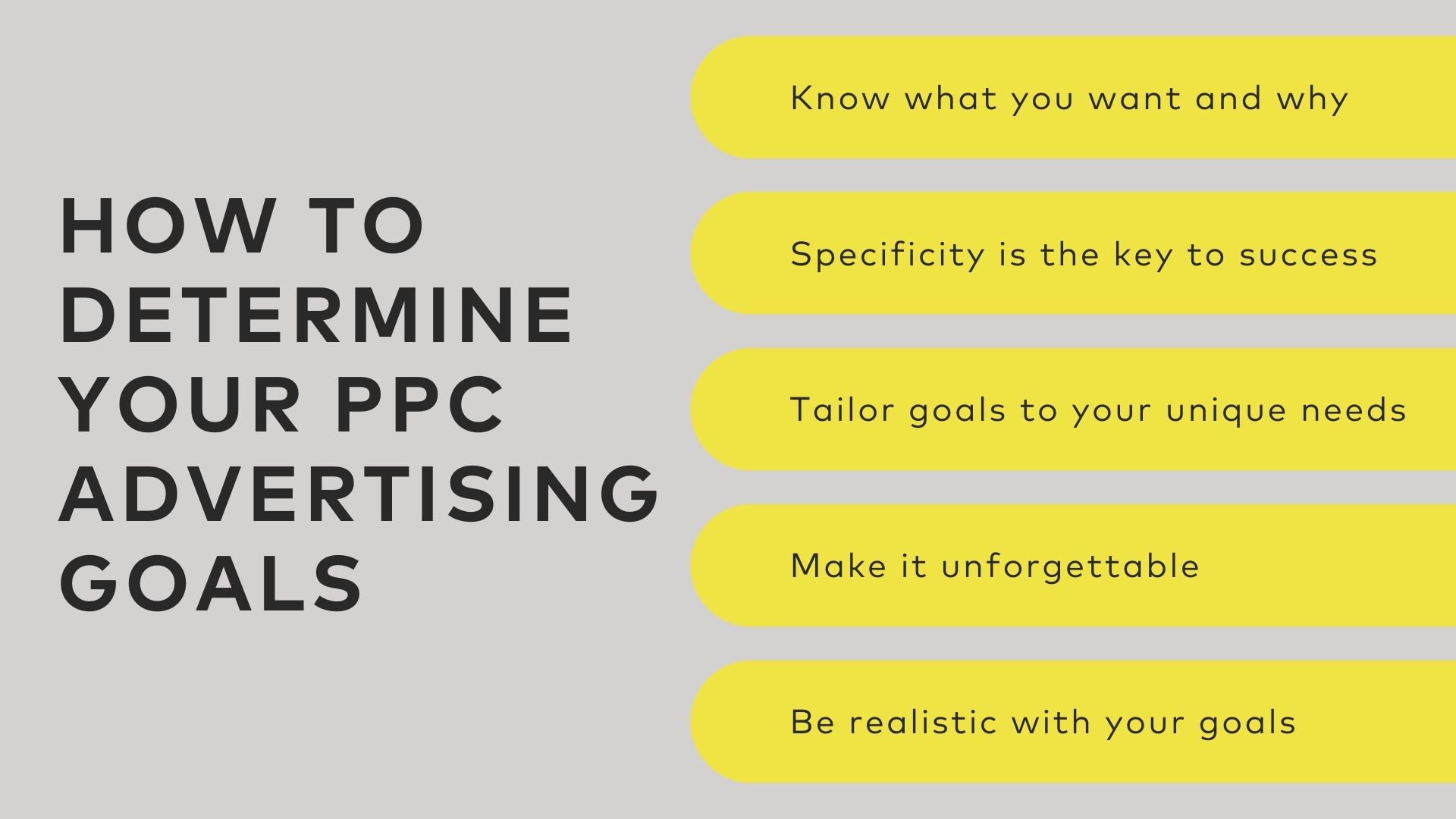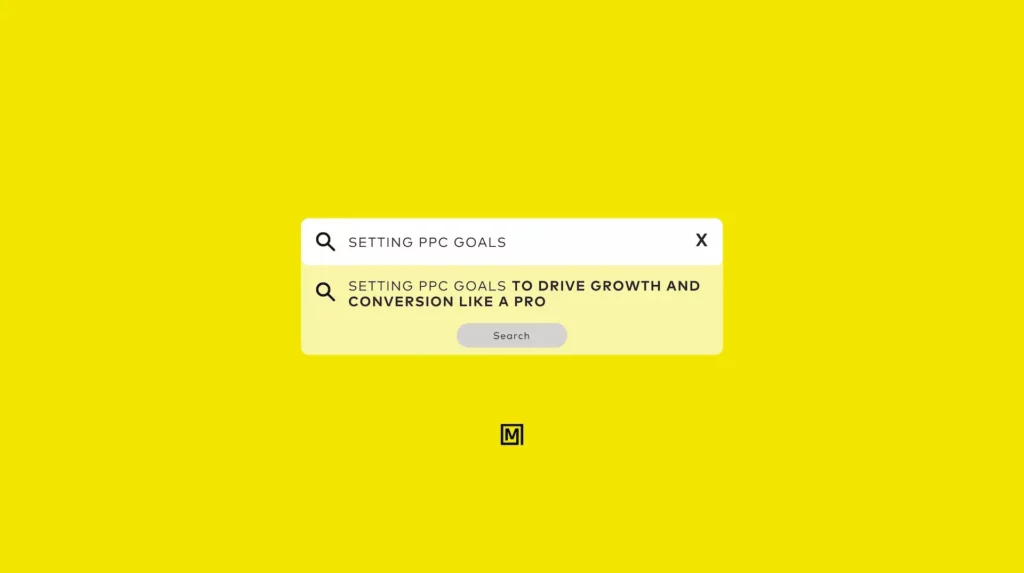No doubt, every business has unique needs. But what remains consistent for every organization is an effective lead generation system and converting those leads into paying — and eventually — loyal customers. Getting these results means you have to constantly put your business in front of your target audience wherever they are.
Where they are just so happens to be search engines. Google, specifically, is the most visited website in the world with over 89.3 billion visits per month.
And while getting your website to show up on the first page of a search engine with SEO efforts is a great long-term digital marketing strategy, the right PPC or pay-per-click campaign can help your business rise to the top quicker.
PPC is truly an excellent method to get near-immediate traffic to your landing page, but once you get them there, then what?
The Power of Goal-Setting in PPC
Unless you know exactly where you want to lead your click-happy audience, they’ll wander aimlessly until they eventually jump ship. In order to get the most out of your PPC campaigns, it’s important to set specific business goals and track your results.
No business goes from clicks to conversions without this critical step. The more defined your marketing goals are, the stronger the results. When you can measure your results, you can adapt your PPC marketing campaign strategy to increase sales, get new leads, or improve the optimization of your search ads.
But what should PPC goals look like?
Goals for your PPC campaign can vary depending on your business and your marketing objectives, but overall you want to keep it SMART — specific, measurable, achievable, relevant and time-bound.
Some common overarching goals include:
- Increase website traffic
- Generate leads
- Drive sales
- Build brand awareness
These are a great start but, to see a return on investment, we need to get much more specific.
Here’s how to determine your PPC advertising goals.

1. Know What You Want and Why You Want It
What’s the purpose of your paid ads? Are you looking for brand exposure, leads, content downloads, contests, newsletter sign-ups, website traffic, or conversions? Take a moment to envision the outcome you seek.
Think about the most vital metrics for your business. Are you more interested in boosting sales, generating leads, or increasing brand awareness?
2. Specificity Is the Key to Success
Avoid vague objectives like, “I want more sales.” Instead, set precise, measurable, and time-bound goals. For instance, “By the end of Q3, we aim to achieve a 10% increase in online sales through PPC campaigns.”
Being specific not only helps you stay focused but also makes it easier to measure your progress and adjust your strategies accordingly.
3. Tailor Goals to Your Unique Needs
Your PPC campaign goals should reflect your unique business needs. Are you a new company seeking to build brand awareness? Then consider setting goals for increasing website traffic and measuring impressions, engagement and reach.
If generating quality leads is your primary focus, establish KPIs to measure the click-through rates (CTR) and the conversion rate from the lead forms on your PPC campaign landing page. Use strong calls to action and consider how remarketing KPIs might be measured.
Remember, your PPC goals should align with your business’s bigger picture, guiding you toward success. It’s important to keep both your short-term goals and long-term goals in mind when developing your PPC strategy.
4. Make It Unforgettable
As seasoned storytellers and creatives, we understand that the heart of any successful PPC ads campaign lies in the art of captivating your audience.
Whether it’s a compelling headline, engaging ad copy, or eye-catching display ads, the creative element is what sets your ads apart and leaves a lasting — or rather unforgettable — impression on potential customers.
In that way, leaving the creative aspect off the table is a huge missed opportunity and money-burner. Remember, you want your PPC ads to stand out in the crowded digital landscape, not drown in the sea of sameness.
Besides, the search engines themselves appreciate creativity! Google Ads, previously Google AdWords, rewards a better quality score for ads and landing pages that are more relevant to users, ultimately lowering your cost-per-click (CPC) and stretching your advertising budget further.
5. Be Realistic With Your Goals
If you’re just starting out with PPC, it’s unrealistic to expect to generate a ton of leads or sales within the first few weeks. PPC is an art because it takes constant fine-tuning, observation, guidance, strategy, and creativity. Everything from the initial keyword research to getting the ad spend to match your budget to tracking key metrics is part of the ongoing process.
Starting with small, achievable goals and gradually increasing them as you learn more about PPC and your target audience is the way to go.
Now that we’ve navigated through the art of goal-setting and storytelling in PPC campaigns, it’s time to put your knowledge into action.
Remember these key takeaways:
- Set clear and specific goals for your PPC campaign, aligning them with your business’s needs and objectives.
- Measure your success by tracking the right metrics and making data-driven decisions.
- Craft engaging ad copy and captivating imagery to stand out in the sea of competitors.
- Regularly monitor your campaign’s performance and adapt your strategies accordingly.
Should you like to have a team of specialists at your side, we’d be happy to be your partners in PPC. Or even if you have a question and need a sounding board, we’re good with that too.
Text or give us a call at 253-503-1227.
Happy PPC campaigning!
